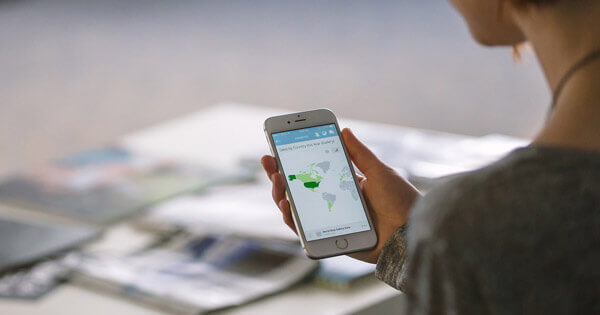
Here’s what we all know by now:
The explosion of smartphone usage over the past few years has been staggering. And not just iPhones, but smartphones of other brands as well…
The Pew Research Center reports that 75% of Americans now own a smartphone and half the population own a tablet. Not only is usage increasing and technology getting more sophisticated, consumers are more reliant on their mobile devices. In fact, 9 out of 10 American consumers keep their smartphones within reach 24 hours a day.
This round-the-clock usage has also redefined the way people book travel. A recent Google report revealed that 77% of luxury travelers turn to their mobile devices for trip inspiration. And a whopping 55% then use their smartphones to book their stay!
As mobile usage propels forward, so should your response as a hotel marketer. Mobile updates, and the world’s response to them, mean that you can’t simply recycle and reuse last year’s mobile strategy. 2017 is a clean slate to keep pace with mobile’s rapid growth.
Here are 5 things you need to know to ride the mobile wave and amplify your mobile revenue this year:
1. Your Search Engine Results Depend on Mobile
For the first time ever, Google is now using your hotel’s mobile site as the primary source to rank your hotel’s website content and user experience, with your desktop version as a secondary site. This means your mobile hotel site is the first factor that goes into determining how well you rank in search engines. While you may have regarded your mobile experience as important in 2016, hotel search engine marketing via mobile is now downright vital to your hotel’s presence, revenue and profitability.
Plus, as mobile search rises, so does the use of local search terms. This places more emphasis on local SEO and the need for your marketing team to create optimized content with tailored metadata that includes location.
2. Use Mobile PPC to Fill Last Minute Rooms
On-the-go travelers rely on their mobile devices to book last-minute hotel reservations (especially at urban/city hotels). Studies show that 58% of last-minute bookings were made from tablets and smartphones. In fact, the less time a traveler has to book a room, the more likely the reservation will be made on a smartphone.




